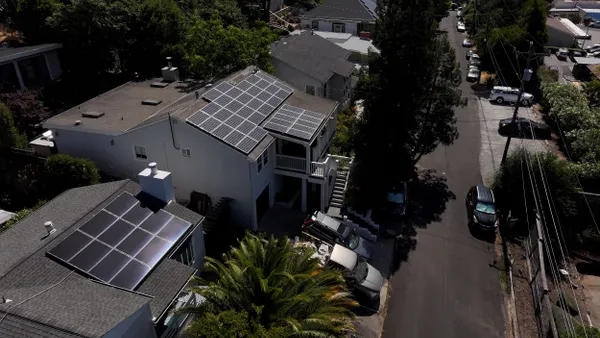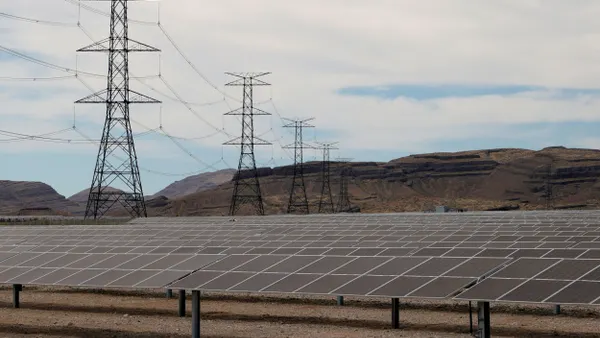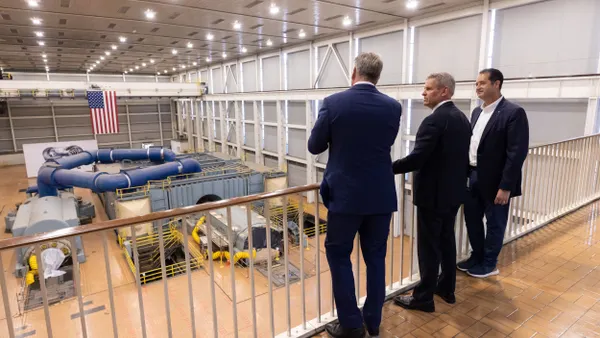Dive Brief:
- The Massachusetts Department of Public Utilities (DPU) has approved contracts for the largest clean energy procurement in the state's history, authorizing utilities to purchase 9,554,940 MWh annually from Hydro-Quebec.
- The decision advances development of the New England Clean Energy Connect transmission line, which is still being reviewed by Maine.
- A February settlement between Central Maine Power and the state led Maine's Public Utilities Commission to authorize a permit for the 145-mile NECEC project in April. A final approval from the Maine Department of Environmental Protection is expected in the fall, according to local media.
Dive Insight:
The Massachusetts' DEP order is a major step toward finalizing the clean energy procurement, but the NECEC transmission line still needs Maine's approval along with a permit from the U.S. Department of Energy.
"We will continue to work closely with our partner Central Maine Power to secure the remaining permits necessary for the transmission line that's needed to deliver that energy, both in Maine and in Québec," Hydro-Quebec CEO Eric Martel said in a statement.
He called the DPU's contract approval "an important step towards a clean energy future in the Northeast."
The contracts provide a total levelized price of $0.059/kWh (in real 2017 dollars) for clean energy and transmission. Massachusetts officials say the project is expected to provide approximately 2% to 4% savings on monthly energy bills. Total net benefits to Massachusetts ratepayers over the 20-year contract, including both direct and indirect benefits, are expected to be approximately $4 billion, according to the state's estimates.
The contracts were approved for utilities Eversource, Unitil and National Grid.
"Moving forward with these hydroelectricity contracts is an important next step," Massachusetts Gov. Charlie Baker, R, said in a statement. The state is working to reduce carbon pollution 80% by 2050, relative to 1990 levels.
Baker has signed comprehensive energy diversification legislation requiring utilities to competitively solicit and contract for approximately 1,600 MW of offshore wind and over 1,000 MW of energy storage. And the administration says a new incentive program, the Solar Massachusetts Renewable Target, will support an additional 1,600 MW of solar in the state.
"These contracts will diversify energy sources available to the consumer and are focused on protecting the ratepayers," DPU Chairman Matthew Nelson said in a statement.
Not all parties were pleased, however. The Sierra Club has questioned the wisdom of relying on Canadian hydropower to address the state's climate goals.
"The DPU’s decision forecloses on the future of a locally-driven, clean energy economy in the Commonwealth by giving a green light to ship taxpayer money out of the country instead of investing in more affordable, more resilient solar and wind energy right here in the region," Sierra Club Eastern Region Deputy Director Mark Kresowik said in a statement.















